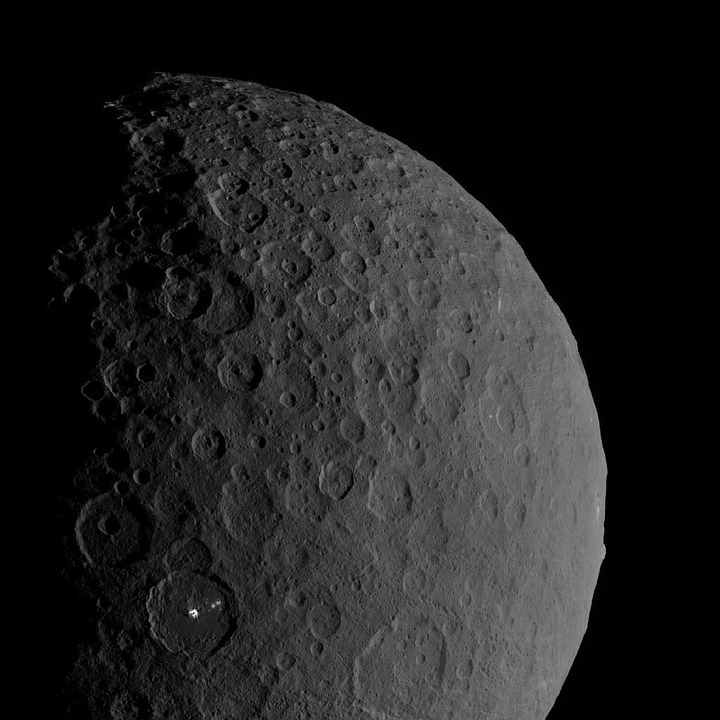Space agencies such as NASA are constantly keeping tabs on asteroids that are coming our way. One particular asteroid is Earthbound this weekend, traveling at a speed of 38,880 kilometers per hour.
Express reports that an asteroid known as 2020 OL4 will be coming by Earth this weekend, and is currently traveling through space at a rate of 10.8 kilometers per second. This asteroid measures 37 meters in length, which is bigger than a blue whale that usually measures 24 meters long, and is classified as a Near-Earth Object.
It will make its approach by Saturday, August 8 and as with almost all the asteroids that come our way, OL4 does not pose a threat as it will only get as close as 7 million kilometers. This is extremely far in human terms, but it is still quite near in astronomical units.
With its size, OL4 could be considered a relatively smaller asteroid compared to giant rocks that would be classified as potentially hazardous. In case of a potential collision, smaller asteroids will more than likely burn up when it reaches the atmosphere or only inflict damage to the impacted area. However, there are smaller asteroids that can slip past the atmosphere and crash into Earth.
Although there is a one in hundreds of thousands of chances of Earth experiencing another asteroid collision with a rock the size of the asteroid that killed the dinosaurs, there is still a chance. But at this day and age, scientists have looked into the scenario of what might happen if a large asteroid were to crash into Earth. One such asteroid that NASA is currently monitoring is 29075 1950, which measures 3,600 feet in diameter.
Scientists have predicted this asteroid to approach Earth by 2880, which would be centuries later.
Researchers at the University of California, Santa Cruz simulated what could potentially happen if this asteroid were to crash into Earth. As the planet is made up of 70 percent water, the asteroid will most likely hit an ocean, and they simulated the asteroid hitting the Atlantic, which is close to the US.
They found that an asteroid crashing into the water would generate waves up to 400 feet high, setting off a massive tsunami that could affect coastal cities.



 Blue Origin’s New Glenn Achieves Breakthrough Success With First NASA Mission
Blue Origin’s New Glenn Achieves Breakthrough Success With First NASA Mission  NASA Partners with Katalyst to Save Swift Observatory with Innovative Docking Mission
NASA Partners with Katalyst to Save Swift Observatory with Innovative Docking Mission  Trump Administration to Launch Autism Initiatives Targeting Acetaminophen Use and New Treatment Options
Trump Administration to Launch Autism Initiatives Targeting Acetaminophen Use and New Treatment Options  SpaceX’s Starship Completes 11th Test Flight, Paving Way for Moon and Mars Missions
SpaceX’s Starship Completes 11th Test Flight, Paving Way for Moon and Mars Missions  Neuren Pharmaceuticals Surges on U.S. Patent Win for Rare Disorder Drug
Neuren Pharmaceuticals Surges on U.S. Patent Win for Rare Disorder Drug  NASA Astronauts Wilmore and Williams Recover After Boeing Starliner Delay
NASA Astronauts Wilmore and Williams Recover After Boeing Starliner Delay  SpaceX Starship Test Flight Reaches New Heights but Ends in Setback
SpaceX Starship Test Flight Reaches New Heights but Ends in Setback  Trump and Merck KGaA Partner to Slash IVF Drug Costs and Expand Fertility Coverage
Trump and Merck KGaA Partner to Slash IVF Drug Costs and Expand Fertility Coverage  CDC Vaccine Review Sparks Controversy Over Thimerosal Study Citation
CDC Vaccine Review Sparks Controversy Over Thimerosal Study Citation  Trump Signs Executive Order to Boost AI Research in Childhood Cancer
Trump Signs Executive Order to Boost AI Research in Childhood Cancer  Neuralink Plans High-Volume Brain Implant Production and Fully Automated Surgery by 2026
Neuralink Plans High-Volume Brain Implant Production and Fully Automated Surgery by 2026 































